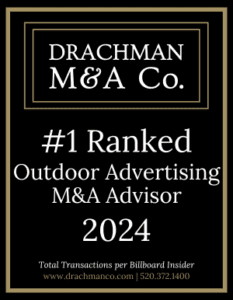
With over 8,000 local jurisdictions, each regulating signs differently, it can be a challenge to establish effective policies and procedures – especially over large geographic footprints– to facilitate local permitting. Each code is different. While not every permit denial merits a legal challenge, there are some steps that can be taken to best position a potential appeal or legal claim. Here are some suggestions:
1. If possible, have one person responsible for the application process and that person should keep detailed notes. If that person is later not available, the notes will be critical. Oftentimes in small jurisdictions that use part time employees or contractors, local governments will not maintain records. For example, some offices will have no records at all for a denial and public records requests cannot fill the gap.
2. Consistent with keeping detailed notes, keep a record of everything that is submitted. If the application is through email or a portal, keep a copy of the uploaded file. If it is over the counter or by mail, keep a copy of everything that is sent. What was submitted and when is a first step in every case. If there is a fee, keep a record of the check or credit card receipt. Many times permits will sit in suspense and be considered incomplete without the fee.
3. Be sure to determine what is needed from a landowner. Sometimes a copy of the lease is needed. Other times the lessor will need to sign the application or an affidavit.
4. Use the language in the local ordinance. Terms can vary widely: off-premise sign, billboard, outdoor advertising device, advertising sign, etc. Some codes function only by structure: ground sign, pole sign, banner sign, wall sign, etc. Frequently, the justification for denials is that the application is not clear on the type of sign. If there is a pre-printed form and no corresponding box to check, make a note that references the type such that it is clear what is to be built. Where illuminated or digital, describe the display type. Usually, a zoning inspector will accept the manufacturer’s specifications for size, brightness, etc.
5. Follow up on the status. Because sign regulations are a prior restraint of speech, applications must be acted upon within a reasonable time. Absent a request for additional information 30-60 days should be sufficient for a decision. Delay can be a form of denial. Being able to tell the city’s attorney that we called and emailed numerous times without a response is very powerful.
6. Insist on a written denial, even if it is just an email. If you can’t get a written denial follow it up with an email or letter indicating that the permit was denied verbally on X date and that you requested a written denial but were denied.
7. Obtain the reason for the denial. If you only receive a copy of the ordinance, ask what portion of the ordinance is the basis for the denial. You should not have to guess at the reason.
8. If you receive a denial that cannot be addressed with an amended application or if you believe the denial is incorrect, promptly send it to legal counsel. Where the legal remedy is an administrative appeal, such as an appeal to a board of zoning appeals, there can be very short time deadlines ranging from 10-30 days.
9. Evaluate the denial. Sometimes a denial is proper under the letter of the ordinance, but the ordinance itself is unlawful. For example, a code may purport to prohibit all billboards but the local government is prohibited by state law from implementing such a prohibition. To the zoning inspector it appears that the application must be denied, but the code itself is illegal. Other codes impermissibly segregate billboards by their content which can also be illegal.
10. Be wary of retroactive zoning. Most jurisdictions require a zoning application to be treated under the code that existed on the day the application was submitted. Denials based upon code changes made after the application was submitted are frequently illegal and reversible.
Mike Galasso is a shareholder in Robbins Kelly, Patterson & Tucker, a law firm which has represented out of home companies for over 30 years to include transactional purchases and sales, land use and zoning, permitting, eminent domain, leasing, real estate, contract, litigation, and employment matters. Mike Galasso can be contacted at (513) 721-3330 or mgalasso@rkpt.com.
To receive a free morning newsletter with each day’s Billboard insider articles email info@billboardinsider.com with the word “Subscribe” in the title. Our newsletter is free and we don’t sell our subscriber list.
Paid Advertisement


















Great information Mike!
Great advice!